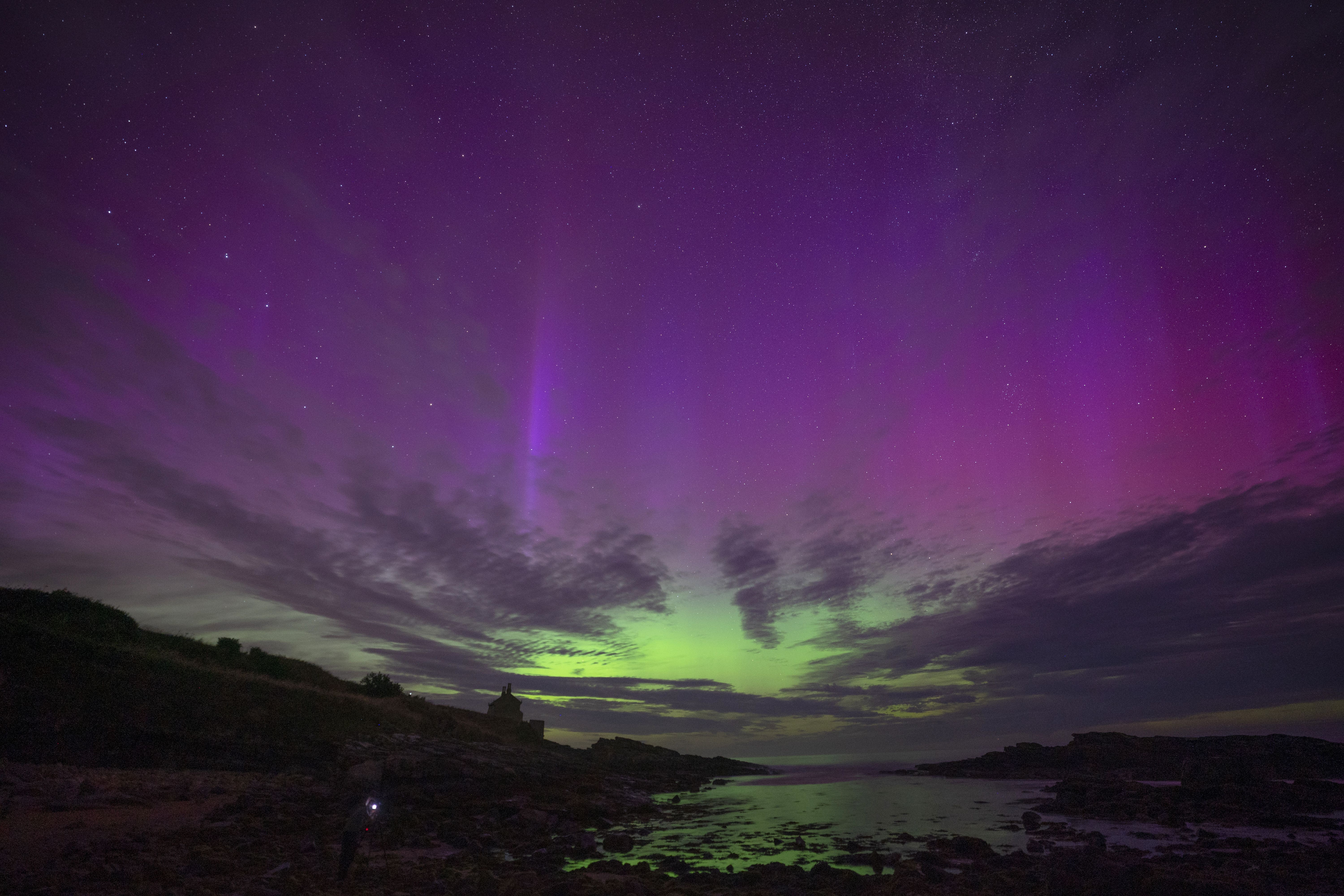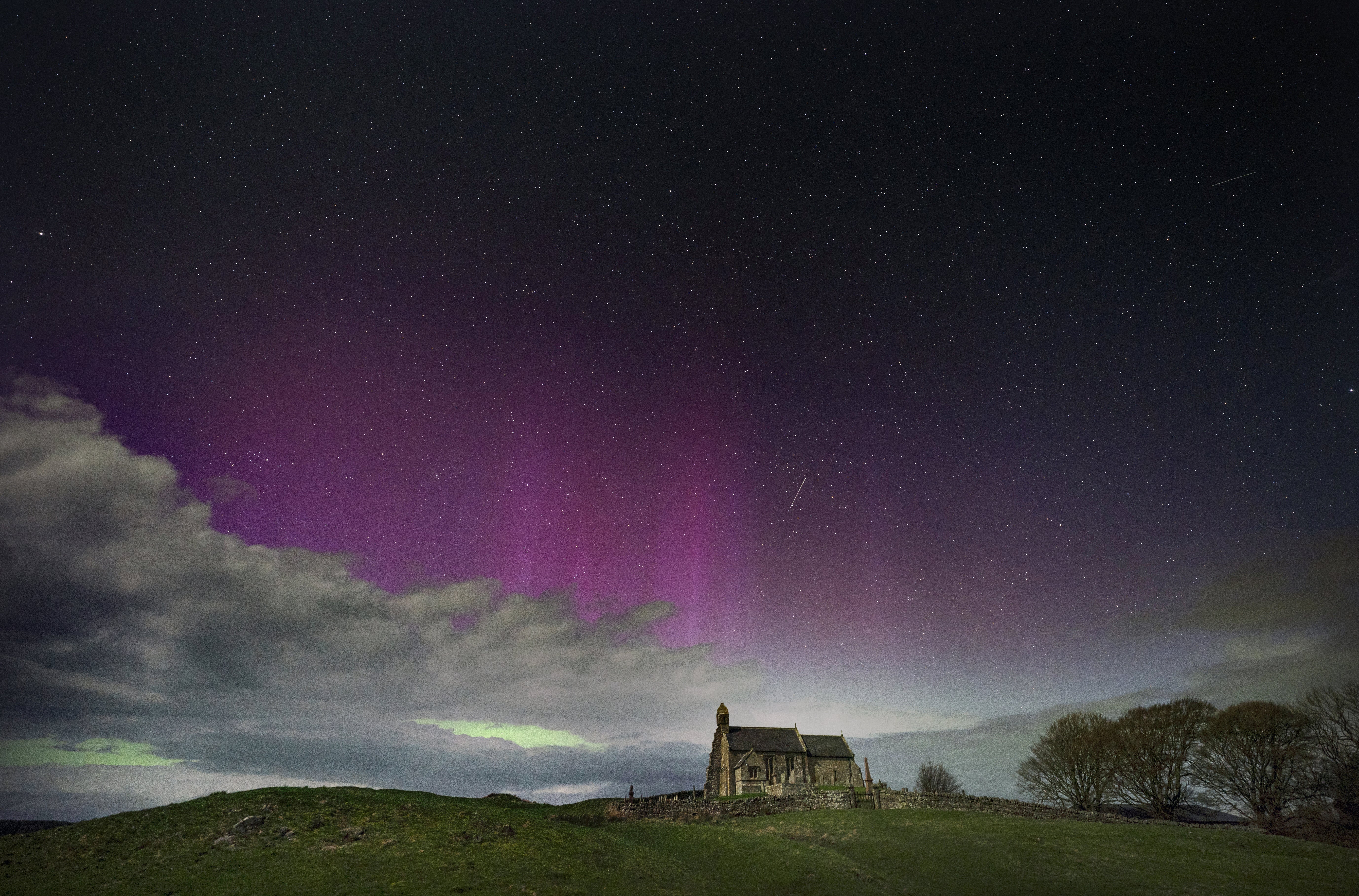Where to look for Northern Lights in UK tonight
The weather service said relatively clear skies were forecast for much of the UK.

Parts of the UK have a “decent chance” of seeing the Northern Lights on Thursday night, the Met Office has said.
The weather service said sightings of the lights, also known as aurora borealis, were likely in Scotland and Northern Ireland, and possible in the north of England and the Midlands.
The Met Office said relatively clear skies were forecast for much of the UK, creating a “decent chance of visibility”.
A spokesperson said there had been “more space weather events in recent months”, including the Northern Lights, because the sun was nearing the peak of its solar cycle.
The further north you are, the more likely you are to get good visibility
Met Office spokesman Stephen Dixon said there was a chance of some visible auroras across parts of the UK on Thursday night and into the early hours of Friday.
He added that there was still “some uncertainty” as to when exactly the auroras would be visible.
Mr Dixon said: “When it does reach Earth, there are likely aurora sightings in Scotland and Northern Ireland, with a chance of some sightings in the north of England and slightly further south.
“Even in the Midlands too, if you’ve got a camera with particularly long exposure that can highlight some of the auroras that are happening overhead.
“The further north you are, the more likely you are to get good visibility.”
He added: “In terms of cloud cover overnight, there are relatively clear skies for much of the UK, so there is a decent chance of visibility.

“The exception to that is in parts of the west of Scotland, where there’s still some showers and some more patchy clouds around.”
He added that further residual viewings could be possible over the weekend, however, this is likely to be confined to Scotland.
Mr Dixon said rain and cloud would also obscure some viewing potential this weekend, meaning Thursday night was the “main focus in terms of any aurora visibility”.
The auroras on Earth, which are most commonly seen over high polar latitudes but can often spread south to be visible over parts of the UK, are chiefly influenced by geomagnetic storms which originate from activity on the sun.
The sun works on a cycle of around 11 years called the solar cycle – with peak sunspot activity on the surface of the sun referred to as solar maximum.
Sunspots give the potential for Earth-directed releases of large bursts of energy, called coronal mass ejections, which can lead to aurora visibility.

Mr Dixon said: “We’re near the peak of that solar cycle so there have been more space weather events in recent months.
“International prediction centres, including the Met Office Space Weather Operations Centre, are expecting solar maximum to be later this year or early next year.”
He added that it would still be possible to see the Northern Lights in the UK once the sun passes the peak of the solar cycle.
Mr Dixon said: “As we move through the next few years, we expect a gradual decline.
“But that doesn’t mean we won’t see further space weather events, where you could see auroras across the UK.”
Aurora displays occur when charged particles collide with gases in the Earth’s atmosphere around the magnetic poles.
As they collide, light is emitted at various wavelengths, creating colourful displays in the sky.
Press Association
Bookmark popover
Removed from bookmarks